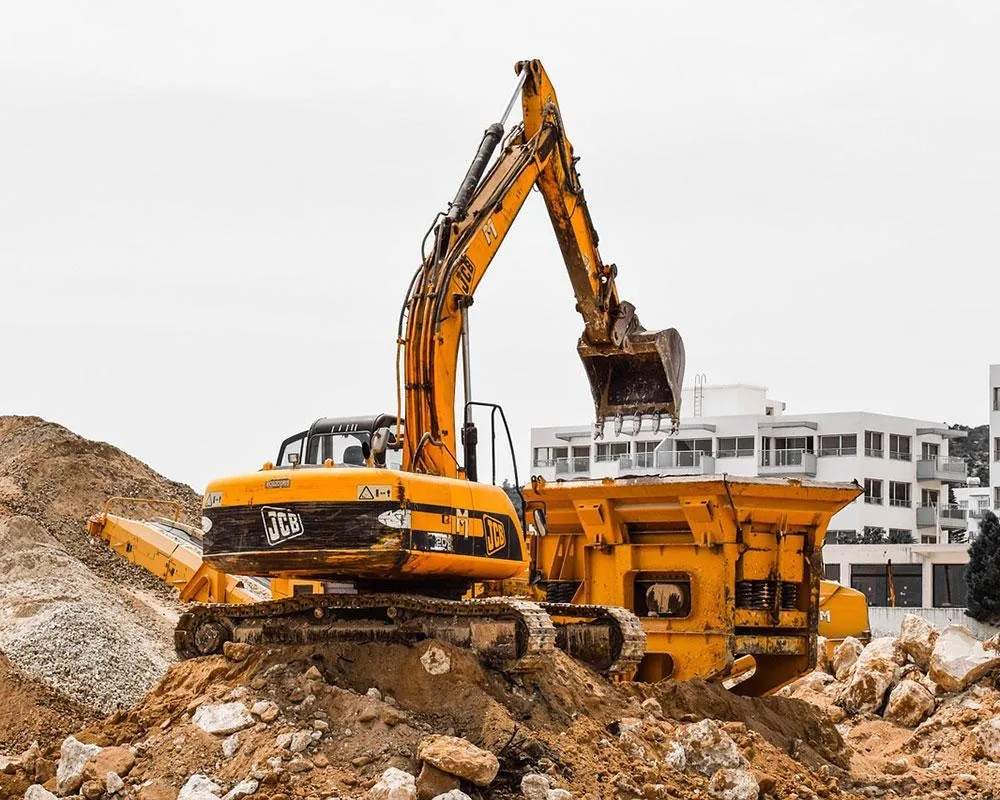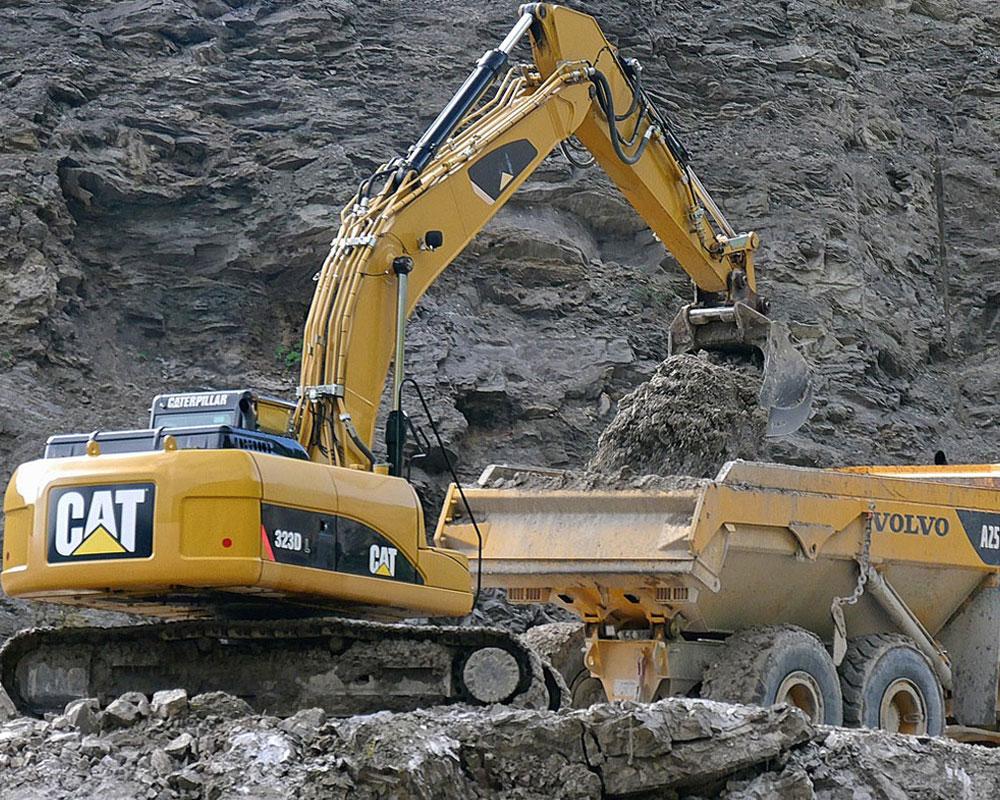
Serving Texas Counties: Collin, Grayson, Dallas, Denton, Rockwall, Fannin and Hunt
Commercial Excavation Company Near Denton County, Texas
Total Septic is Committed to superior quality and results!

AVOID COSTLY MISTAKES:
Do NOT hire an excavating contractor without first reading our free guide:
The ULTIMATE Excavation & Septic "Success Guide."

Commercial Excavation Company Near Denton County: Everything You Should Know Before You Build
If you’re planning a commercial construction project in North Texas, quality excavation is essential to ensure everything from foundations and drainage to paving fits perfectly. Choosing a reliable Commercial Excavation Company near Denton County, Texas, guarantees safety, precision, and dependable results from the start. This guide covers what commercial excavation involves, its benefits, cost factors, and how to hire the right contractor.
How Can We Help?


Why Choose a Commercial Excavation Company Near Denton County, TX
Building in Denton County brings unique challenges — from expansive blackland clay to rocky limestone areas that make excavation unpredictable. Hiring locally gives you an edge.
Local knowledge means fewer surprises.
Local crews understand the county’s soil types, weather cycles, and stormwater rules.
They already know city permit offices and Texas environmental codes.
Shorter mobilization times reduce project delays.
Why this matters:
A crew that’s familiar with Texas clay knows how to manage moisture control, grading, and compaction so your site stays stable long after construction wraps up.
Core Services Provided by a Commercial Excavation Company Near Denton County
When you hire a professional excavation company, expect a complete site preparation package. These are the core services commercial clients typically need:
Site Clearing & Grubbing – Removal of vegetation, debris, and topsoil to create a clean, workable surface.
Mass Grading & Leveling – Balancing cut and fill areas to achieve proper drainage and elevation.
Soil Stabilization – Treating expansive clay or loose soil with lime or cement to increase load-bearing strength.
Utility Trenching – Digging safe, code-compliant trenches for water, sewer, gas, and electrical lines.
Stormwater Management – Installing retention ponds, culverts, and drainage swales to prevent erosion.
Rock Excavation – Breaking and removing limestone or caliche where present.
Roads & Access Pads – Constructing temporary or permanent access roads for construction equipment.
These services are planned and executed with detailed site surveys, grade checks, and safety inspections to ensure every phase of your build meets code and engineering requirements.
The Benefits of Hiring a Commercial Excavation Company Near Denton County, Texas
When you work with a local commercial excavation contractor, you’re investing in more than just heavy equipment — you’re securing experience that pays off throughout the project.
1. Predictable Budgets
Accurate estimates come from crews who know Denton County’s terrain. That reduces costly “unknowns” like unexpected rock layers or unstable clay pockets.
2. Reliable Timelines
Local operators understand Texas weather patterns and schedule work around them — keeping your project on track even through spring rains or summer heat.
3. Safer Job Sites
Proper shoring, trench safety, and traffic control are built into every phase. Fewer incidents mean fewer delays and lower insurance headaches.
4. Quality You Can Measure
Consistent compaction, moisture testing, and lift control ensure your foundation is stable and ready for concrete, asphalt, or structural loads.
5. Compliance Confidence
From stormwater permits (SWPPP) to Texas Department of Transportation (TxDOT) standards, local excavation companies already meet the area’s strict codes.
6. Long-Term Performance
Good excavation prevents settlement, drainage problems, and cracking years later — protecting your investment and warranty.
See Our Excavation & Septic Services

✔️ Commercial Excavation
✔️ Residential Excavation
✔️ Demolition
✔️ Dozer work
✔️ Septic inspections
✔️ Septic system pumping
✔️ Septic installs traditional systems
✔️ Septic tanks - aerobic systems
✔️ Septic tanks - Plastic/poly
Quality Services Launched FAST!

✔️ Septic tanks - Concrete
✔️ Sewer repairs
✔️ Trenching
✔️ Utilities Trenching
✔️ Pump Outs Installs
✔️ Maintenance Contracts
What Are You Waiting For?
The Process for Hiring a Commercial Excavation Company Near Denton County, Texas
Choosing the right contractor doesn’t have to be stressful. Follow this simple process to make sure you hire the right team for your project:
Step 1: Define Your Scope
Gather your civil drawings, geotechnical report, and utility layout. Clarify what’s included: clearing, grading, stabilization, or utilities.
Step 2: Conduct a Site Walk
Invite potential contractors to inspect the site. They’ll note access points, existing conditions, and possible problem areas.
Step 3: Request Detailed Bids
Ask for itemized proposals that include equipment lists, haul distances, compaction specs, and testing methods. Avoid vague lump-sum quotes.
Step 4: Review Experience & Credentials
Confirm that your chosen company is licensed, insured, and familiar with local Texas standards. Request past project references within Denton County.
Step 5: Align Expectations
Before signing, review responsibilities for erosion control, testing, and weather contingencies. Clear communication prevents mid-project disputes.
Step 6: Kickoff Meeting
Set start dates, safety requirements, communication methods, and inspection schedules. Everyone should understand their role from day one.
Step 7: Quality Control & Reporting
During the project, require daily logs, moisture and density test results, and photo documentation for underground utilities.
Step 8: Closeout & Turnover
When work is complete, collect final grading verification, compaction reports, and stormwater compliance forms before paving or vertical construction begins.
What Affects Commercial Excavation Costs in Denton County
Excavation pricing depends on multiple factors that vary site to site. Here’s what influences the total cost most:
Soil Type: Black clay and limestone can require stabilization or rock removal.
Haul Distance: The farther the material must be moved or disposed of, the higher the cost.
Utilities Depth: Deep trenches or complex routing increase labor and equipment time.
Weather Delays: Heavy rain or saturated soil can slow progress.
Site Access: Tight spaces require smaller equipment and more operator time.
Testing & Reporting: Engineering requirements for density and moisture testing add oversight time but ensure quality.
Knowing these variables upfront allows for better planning — and a local company will include them transparently in your quote.
Facebook
Google Plus